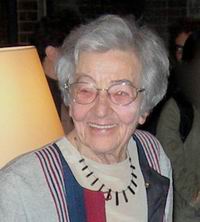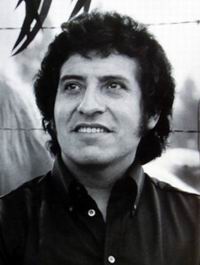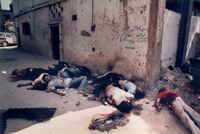Seeds of Fire: A People’s Chronology
Recalling events that happened on this day in history.
Memories of struggle, resistance and persistence.
Compiled by Ulli Diemer
|
September 16, 1498
|
|
Death of Tomas de Torquemada, the first Grand Inquisitor of the Spanish Inquisition, notorious for his persecution of Christians suspected of heresy, as well as of Jews and ‘crypto-Jews’. Torquemada was one of the chief supporters of the Alhambra Decree, which expelled Jews from Spain in 1492. His approach to persons suspected of heresy was to first give them the opportunity to confess; if they refused to confess they would be tortured until they did. Many of those convicted of heresy were put to death by beheading or being burnt to death; some were left in prison until they died.
In Dostoyevsky’s novel The Brothers Karamazov, the figure of the Grand Inquisitor is based on Torquemada. In the tale, Jesus Christ returns to earth and is condemned to death for heresy. Torquemada goes to see Christ in his prison cell and explains to him that his religious beliefs are a danger to the Christian Church.
|
|
September 16, 1912
|
|
|
The Vancouver Island Coal Strike begins when miners at Cumberland walk out to protest an arbitrary firing. The issues in the strike are union recognition and safety (there have been hundreds of deaths in the mines). The mining companies lock them out and bring in scabs to break the strike. The government backs the companies by sending in a large force of militia and imprisoning striking miners. Eventually the strike is defeated.
|
|
September 16, 1913
|

|
|
The German Marxist Rosa Luxemburg gives a speech in which she says that if the ruling classes start a war and call on workers to kill other workers, the reply must be #we will not do it!#
The German state charges her with calling for public disobedience of the laws, and jails her. When the Great War breaks out less than a year later, Luxemburg is in jail, and workers in all the imperialist states accept the call to arms and set out to kill other workers.
|
|
September 16, 1921
|

|
|
Birth of Ursula Franklin, Canadian scientist and author. Franklin has written and spoken extensively on the social and political effects of technology, and has been active in the anti-war, feminist, and social justice movements.
|
|
September 16, 1971
|
|
|
In a series of continuing protests against the expropriation of land for Narita airport near Tokyo, 5,000 farmers and students battle police. Three policemen are killed in the riot.
|
|
September 16, 1973
|

|
|
Chilean singer-songwriter Victor Jara is murdered by the dictatorship which seized power in Chile on September 11, 1973. Jara is among thousands of prisoners held in the Chile Stadium after the coup. He is beaten and tortured; the bones in his hands are deliberately broken to ensure that he cannot play a musical instrument. On September 16 he is murdered by soldiers. Thirty years later, in 2003, the stadium in which he was murdered is renamed Estadio Victor Jara.
|
|
September 16, 1982
|

|
|
A massacre takes place in two Palestinian refugee camps in Lebanon, Sabra and Shatila. The actual massacre is carried out by a Lebanese Phalangist militia allied with Israel. However, at the time of the massacre, access to the camps is controlled by the Israeli armed forces (IDF), and later evidence shows that the Israeli authorities were well aware of what the Phalangists were intending to do, and gave them access to the camps so they could carry out their planned slaughter. The IDF also prevented Palestinians trying to flee the massacre from escaping.
|

